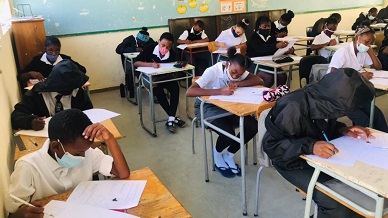
Handbook on how to report on violence against women and girls published by UNESCO

The United Nations Educational, Scientific and Cultural Organisation (UNESCO), last month launched the publication ‘Reporting on Violence against Women and Girls: a Handbook for Journalist’ .
The handbook was produced for media professionals who seek to approach and highlight Violence against Women and Girls (VAWG) in an ethical and sensitised manner.
Written by Anne-Marie Impe and Edited by Mirta Lourenco the handbook is an informative and practical guide touching upon particular gender-related types of violence, and includes specific examples, hands-on advice, definitions, data and recommendations for additional resources.
UNESCO have highlighted that given the scale of this scourge, it has become important to cover gender-based violence issues, in order to help the media to better understand the scale and consequences of this violence on the people directly concerned.
They explained that while putting together this handbook, an analysis of selected press articles and television and radio reports revealed the need to assist the media in improving the coverage of such crucial and unjust issues as violence against women and girls. “This handbook does not seek to provide an exhaustive and complete analysis of the subject of violence, but it does intend to help radio, television, press and social media professionals determine which channels of investigation and information would be relevant and ethical,” they emphasised.
According to UNESCO it therefore provides working media professionals and those already involved in ethical journalism with recommendations and examples of good practice to help them make the right choices in media coverage of such an important topic.
“The media can create the right conditions to neutralise this violence and combat it through articles and by taking a committed civic stance,” they added.
The United Nations Educational, Scientific and Cultural Organisation therefore wished to publish this handbook in order to provide journalist and other media professionals with explanations, definitions, statistical data and, above all, resources and advice so that from now on these issues are treated as violations of fundamental rights.











































